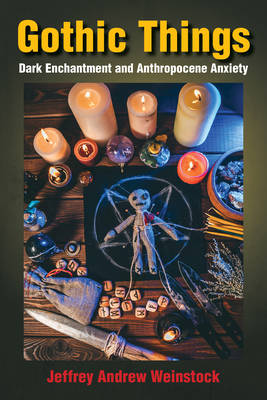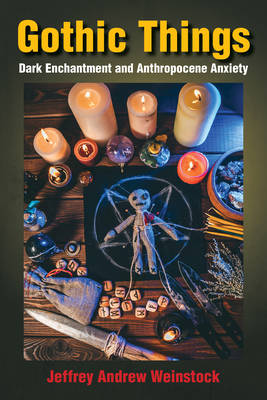
- Retrait gratuit dans votre magasin Club
- 7.000.000 titres dans notre catalogue
- Payer en toute sécurité
- Toujours un magasin près de chez vous
- Retrait gratuit dans votre magasin Club
- 7.000.0000 titres dans notre catalogue
- Payer en toute sécurité
- Toujours un magasin près de chez vous
Gothic Things
Dark Enchantment and Anthropocene Anxiety
Jeffrey Andrew Weinstock
Livre relié | Anglais
169,45 €
+ 338 points
Format
Description
SHORTLISTED, THE ALLAN LLOYD SMITH PRIZE FOR BEST MONOGRAPH
Offering an innovative approach to the Gothic, Gothic Things: Dark Enchantment and Anthro-pocene Anxiety breaks ground with a new materialist analysis of the genre, highlighting the ways that, since its origins in the eighteenth century, the Gothic has been intensely focused on "ominous matter" and "thing power." In chapters attending to gothic bodies, spaces, books, and other objects, Gothic Things argues that the Gothic has always been about what happens when objects assume mysterious animacy or potency and when human beings are reduced to the status of just one thing among many--more powerful--others. In exploring how the Gothic insistently decenters the human, Jeffrey Andrew Weinstock reveals human beings to be enmeshed in networks of human and nonhuman forces mostly out-side of their control. Gothic Things thus resituates the Gothic as the uncanny doppelgänger of twenty-first-century critical and cultural theory, lurking just beneath the surface (and sometimes explicitly surfacing) as it haunts considerations of how human beings interact with objects and their environment. In these pages the Gothic offers a dark reflection of the contemporary "nonhuman turn," expressing a twenty-first-century structure of feeling undergirded by anxiety over the fate of the human: spectrality, monstrosity, and apocalypse. Substituting horror for hope, the Gothic, Weinstock explains, has been a philosophical medita-tion on human relations to the nonhuman since its inception, raising significant questions about how we can counter anthropocentric thought in our quest to live more harmoniously with the world around us.Spécifications
Parties prenantes
- Auteur(s) :
- Editeur:
Contenu
- Nombre de pages :
- 240
- Langue:
- Anglais
Caractéristiques
- EAN:
- 9781531503413
- Date de parution :
- 04-07-23
- Format:
- Livre relié
- Format numérique:
- Genaaid
- Dimensions :
- 152 mm x 229 mm
- Poids :
- 458 g

Les avis
Nous publions uniquement les avis qui respectent les conditions requises. Consultez nos conditions pour les avis.






